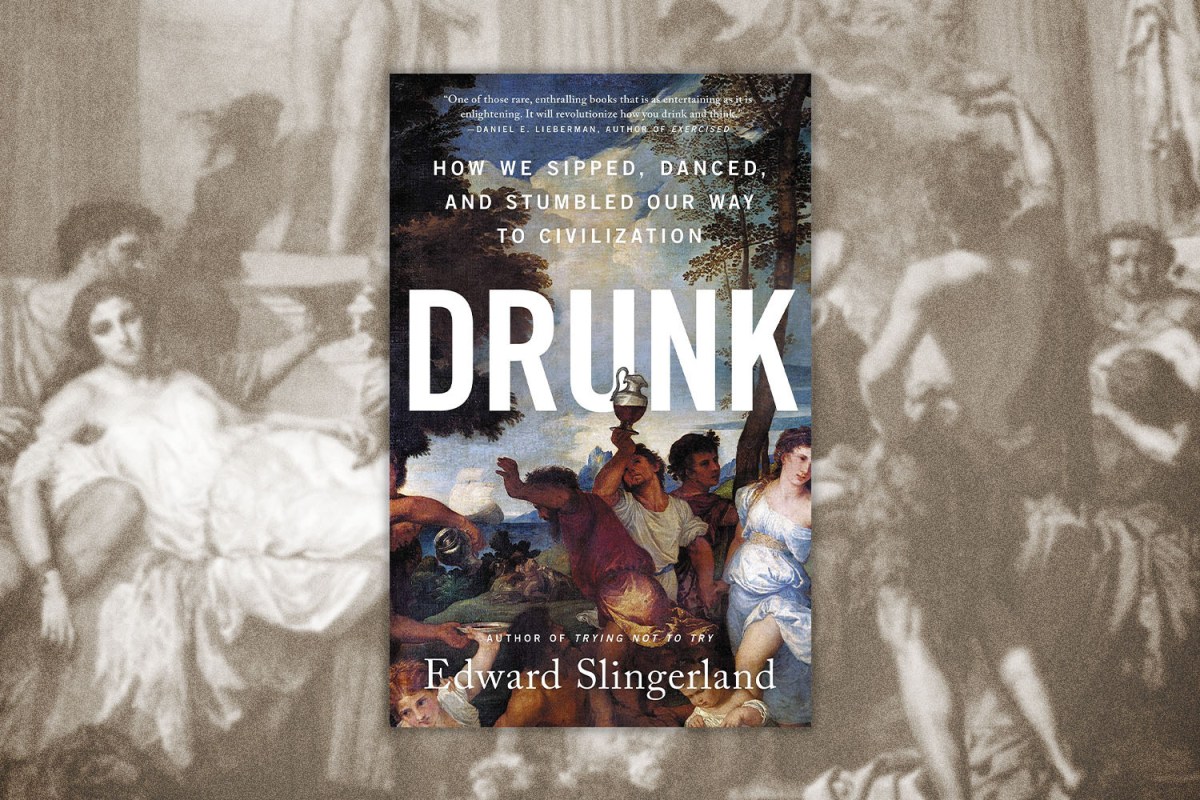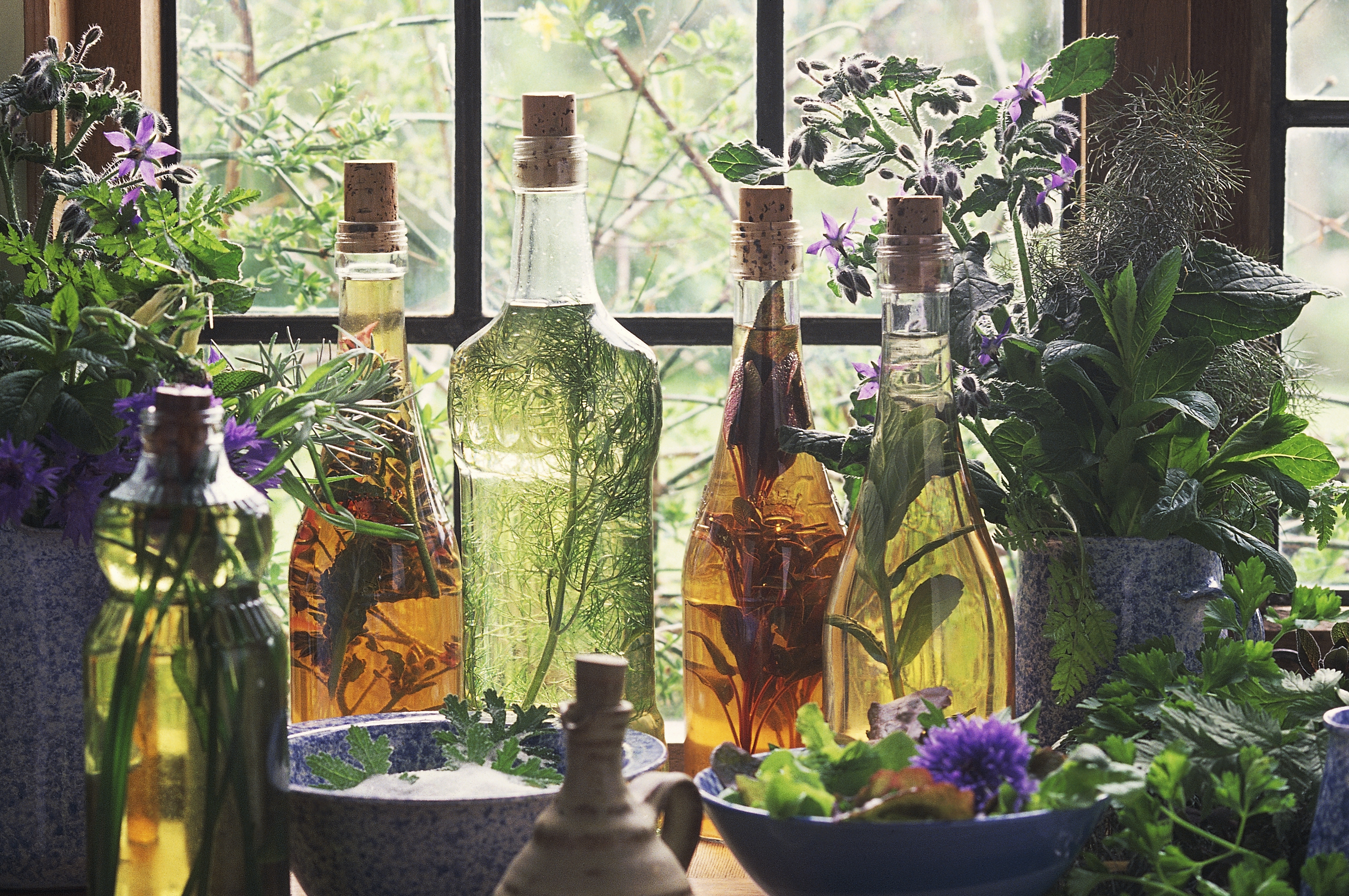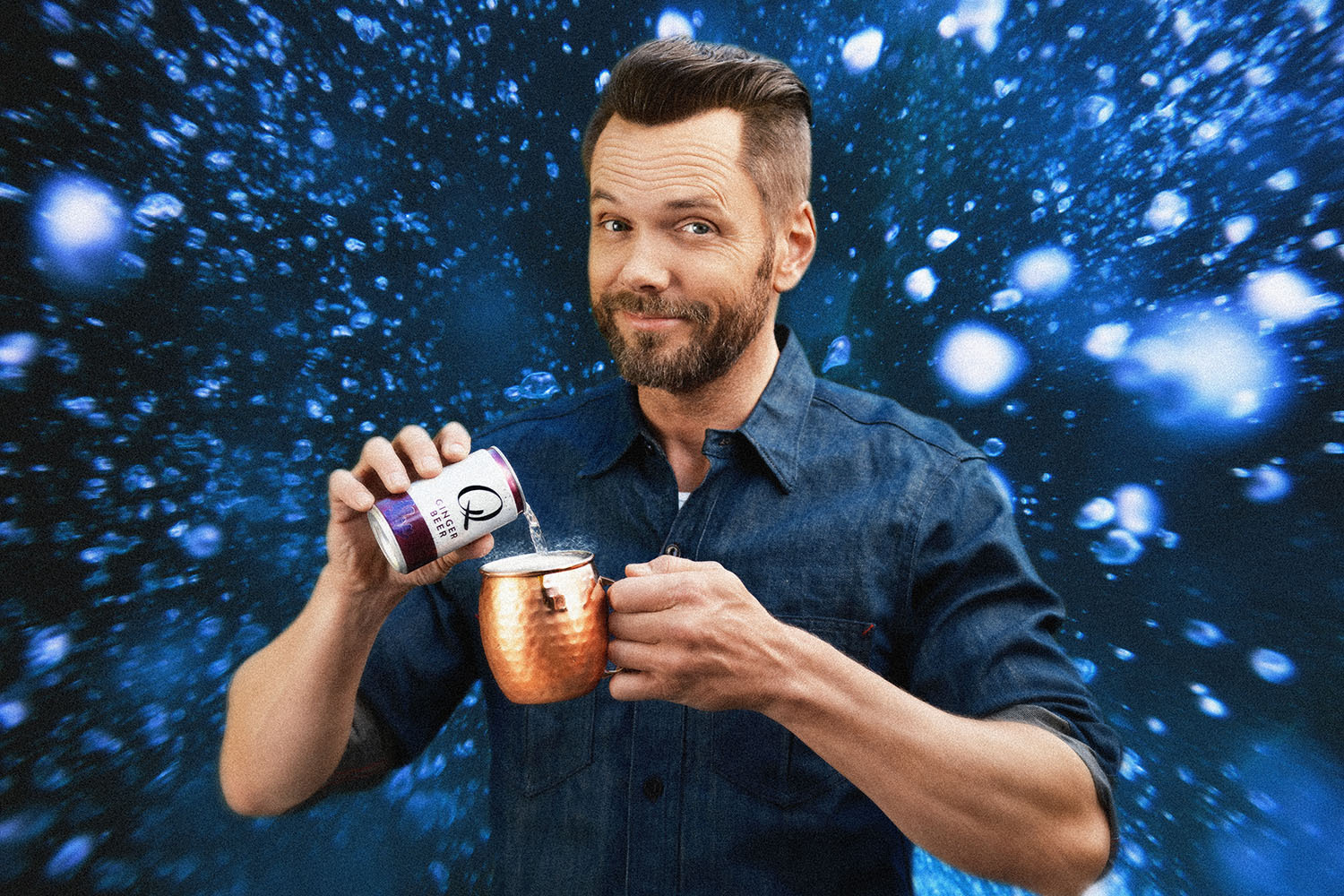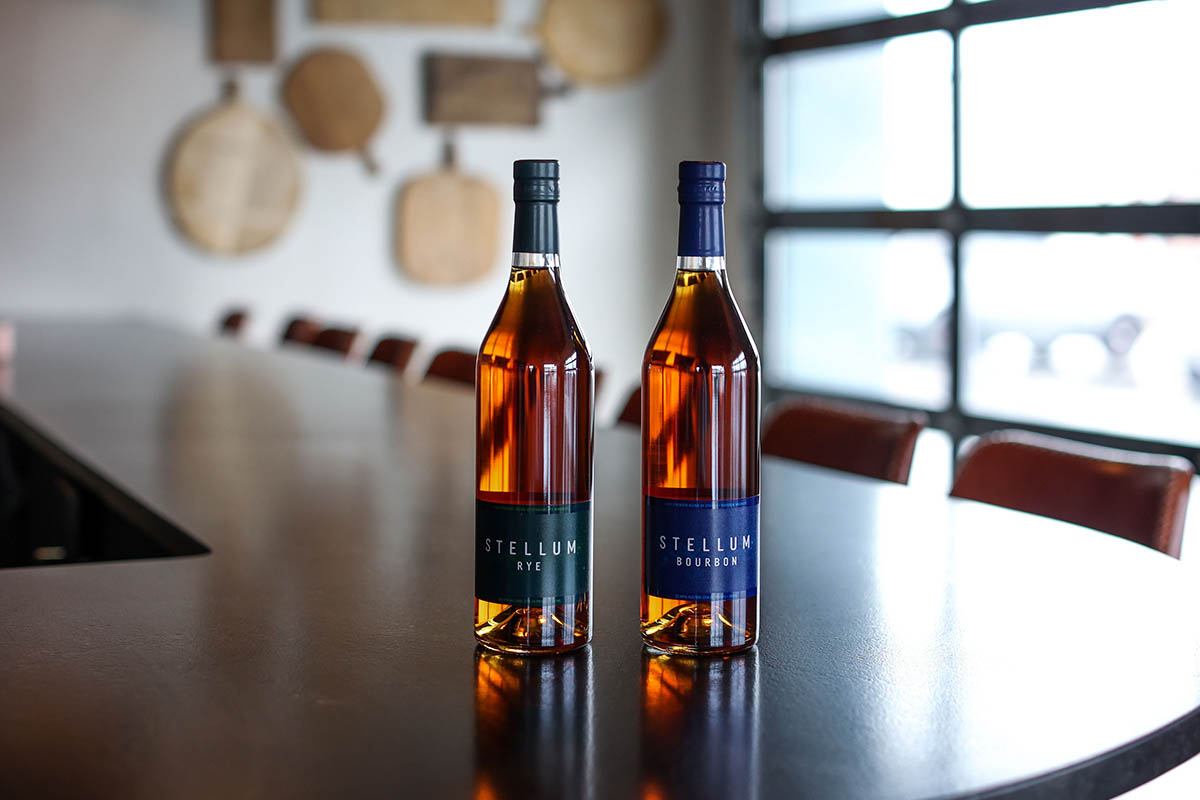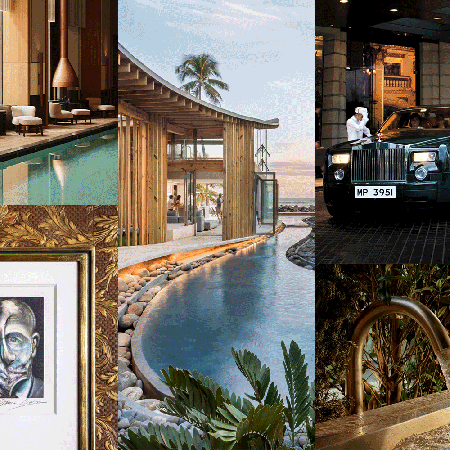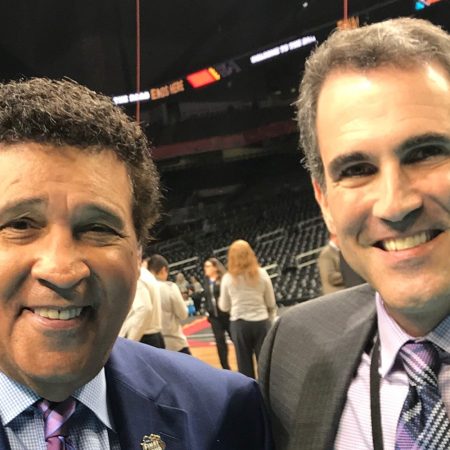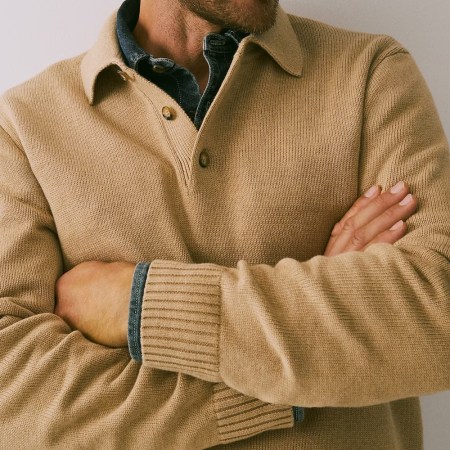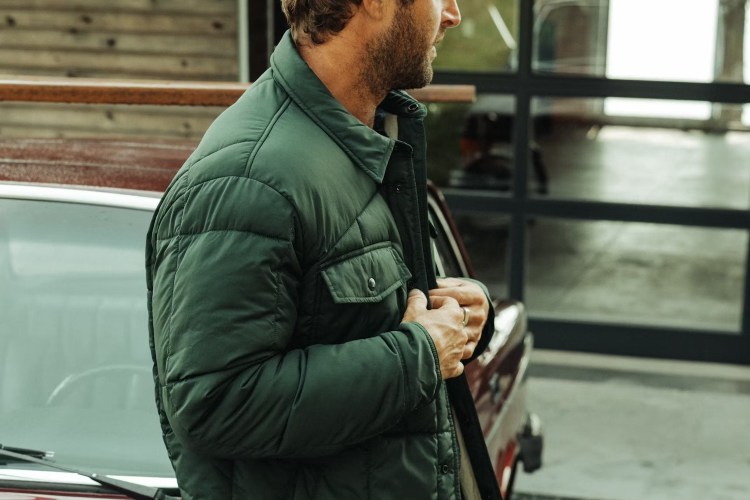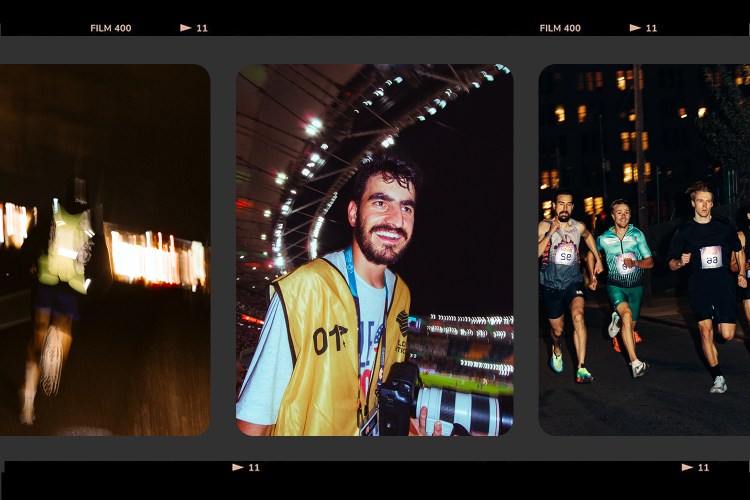Straight from the bio: “Edward Slingerland is Distinguished University Scholar and Professor of Asian Studies at the University of British Columbia, with adjunct appointments in Psychology and Philosophy, as well as Co-Director of the Centre for the Study of Human Evolution, Cognition and Culture and Director of the Database of Religious History.”
So of course his new book is called Drunk. And, yes, it’s a historical deep dive into intoxication.
“Yeah, my colleagues in early Asian Studies were like, what?” admits Slingerland. “My training is in early Chinese philosophy and comparative religion.” But the professor’s new book (full title: Drunk: How We Sipped, Danced, and Stumbled Our Way to Civilization) actually has its origins in a more scholarly project.
“My big research has been in the evolution of religion — as in, why are we religious in the first place?” he asks. “It’s costly, you’re fasting, cutting off foreskin, not eating certain foods, building enormous monuments like the Terracota warriors and then burying them … it’s weird. Why waste resources? Why not just use that knowledge to build an irrigation system?”
Those questions led Slingerland — who enjoys the occasional single malt — to larger ideas about cultural identity and cooperation problems in large-scale societies. And how, in his research, it’s actually alcohol that seems to alleviate a lot of those issues (albeit causing some as well — cue Homer Simpson).
So looking at booze through the lenses of archaeology, history, cognitive neuroscience, psychopharmacology, social psychology, literature and genetics, Slingerland wanted to know … why are we, historically, purposely poisoning ourselves with booze, and why does this overall seem to be a good thing?
“Alcohol has to be serving some kind of function that pays for all of its costs,” he notes.
And here, for good and bad, is what alcohol serves, in both cost and function:
Alcohol leads to creativity
Yes, drunken rock stars may have a point. “Alcohol helps you be spontaneous and relaxes the mind,” says Slingerland. “I talk about a study where if you have one or two drinks, you become better at solving lateral thinking tasks.” One recent famous example? During his time at Microsoft, the “Ballmer Peak” was supposedly a finely-tuned blood-alcohol level discovered by Steve Ballmer where his coding skills would be at their highest.
It also rewinds the clock
The prefrontal cortex — which moderates social behavior and decision making — is the last part of your brain to mature. “Alcohol can down regulate that,” says the professor. “It’s an enemy to creativity. It’s why kids are great at creative tasks and able to think outside the box.” So for better or worse, chemical intoxicants can help you regain a child’s mind, creativity and flexibility.
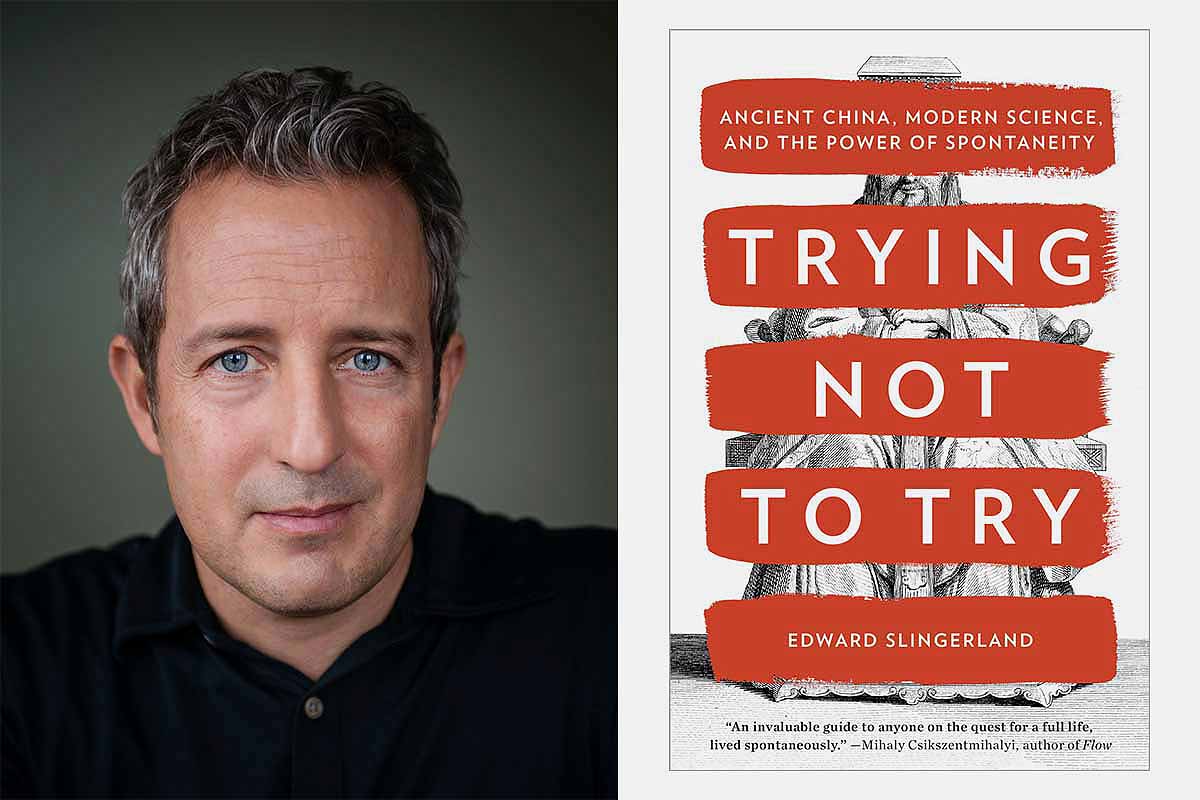
It brings people together
“Over history, alcohol has enhanced bonding with unrelated individuals,” says Slingerland. Proof? “They’re not giving you yogurt when you meet someone. Why not? Yogurt is healthier, right?” But yogurt doesn’t necessarily help with improving your mood or putting down your defenses. And laboratory experiments show drinking helps bolster group identity, interpersonal chemistry and self disclosure.
It’s not drinking, it’s “philosophical hedonism“
Throughout the history, philosophy and science lessons in the book, which range from Viking gods to George Washington (as a military man, very pro booze!) to sexually-starved fruit flies (it ties in, trust us), Slingerland does present a really simple argument. “Maybe alcohol is bad for you, maybe it harms society, but I like it, it makes me feel good,” he theorizes. “Plus, proponents typically add, lots of stuff is not good for you, but we do those things anyway because they are fun. As a philosophical hedonist, I am fully on board with the rock-n-roll defenders. It is true that, in our current age of neo-Prohibition and general queasiness about risk, we desperately need to be clear about the simple joy of feeling good.”
So, feeling good is rooted in deep thinking? “An early Greek school of thought was that philosophical hedonists thought the purpose in life was to maximize pleasure,” says the author, who adds a big caveat. “That said, early Greek hedonists were not big partiers. They thought the cost of hangovers wasn’t worth the pleasure of drinking. They liked figuring out intellectual problems. That was their idea of pleasure.”
Counterpoint: We weren’t designed to drink. And that’s a problem.
“Distilled liquor is a relatively recent invention,” says Slingerland, who notes that it wasn’t widely used until 13th century China (and many centuries later in Europe). “And we’re not evolutionarily designed for it.” In other words, those legendary drunken banquets throughout history were probably full of two-percent beers, not 80-proof vodka.
The real problem? Distillation made it easier to push way past alcohol limits. And people in traditional societies would not drink alone, but in communal settings where everyone was sitting down and there was a toastmaster taking charge. “In ancient Greece, you’d have a head of party with a special title who told you when to toast and who could watch the water-to-wine ratio. It was communally regulated. Otherwise, you didn’t have access to booze except in a public way, like a banquet.”
And Covid further screwed everything up.
“We’re home alone and have access to alcohol and pouring another glass whenever — traditional and social controls have been removed,” says Slingerland. “We’ve been out of a social context. It’ll be better to go back to bars and reestablish drinking practices and replace solitary drinking.” Basically, based on evolution, drive-through liquor stores and delivery options are way, way ahead of where we are as a species.
Finally, pot isn’t booze.
While sharing similar mood-altering characteristics as alcohol, cannabis isn’t quite the same thing. “The beauty of alcohol is that it’s consistent and easy to dose,” says Slingerland, who calls booze the “primary social drug” throughout history. “There are consistent cognitive effects and a really short-time effect. The machinery in our body getting alcohol out of our body as quickly as possible.”
Join America's Fastest Growing Spirits Newsletter THE SPILL. Unlock all the reviews, recipes and revelry — and get 15% off award-winning La Tierra de Acre Mezcal.
